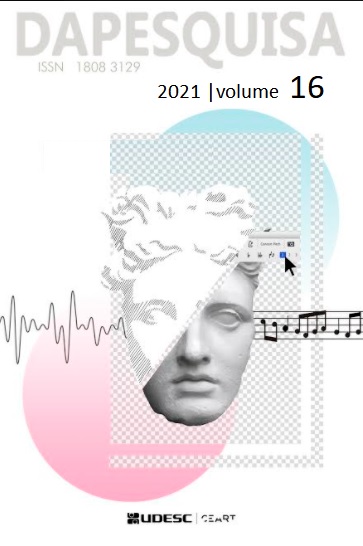Design for sustainability
contributions of reflective design to the emotional longevity of fashion products
DOI:
https://doi.org/10.5965/18083129152021e0015Keywords:
Fashion design, User-centered system design, SustainabilityAbstract
In this article, through bibliographic research, the objective is to explore the contributions of the concept of reflective design (NORMAN, 2008) in the expectation of longevity of fashion products, in search of a more sustainable scenario through the awakening of pleasant emotions and the creation of affective bonds between users and their clothes. Considering that part of the socio-environmental problem comes from the impacts of production and consumption caused by the fashion system, the idea of developing products that can last longer according to their emotional value and that, therefore, will contribute to the deceleration of cycles disposal and replacement. In this context, based on the theory of Emotional Design (JORDAN, 1999; DESMET, 2002; NORMAN, 2008), reflective design strategies are developed that can assist in the design of projects with a focus on facilitating emotionally lasting experiences.
Downloads
References
BALDINI, M. A invenção da moda: as teorias, os estilistas, a história. Lisboa: Edições 70, 2006.
BAUMAN, Z. Vida Para o Consumo: a transformação das pessoas em mercadorias. Rio de Janeiro: Jorge Zahar, 2008.
DESMET, P. 2002. Designing emotions. Netherlands: Delft University of Technology, 2002.
FLETCHER, K.; GROSE, L. Moda & Sustentabilidade: design para mudança. São Paulo: Editora Senac, 2011.
FLÜGEL, J. C. A Psicologia das Roupas. São Paulo: Mestre Jou, 1966.
FRIJDA, N. The emotions. Cambridge: University Press, 1986.
FUAD-LUKE, A. Design Activism: Beautiful strangenes for a sustainable world. USA : Earthscan, 2009.
HEKKERT, P.; McDONAGH, D. Design and Emotion. The Design Journal, United Kingdom, v. 6, n. 2, p. 1-3, 2003. DOI: https://doi.org/10.2752/146069203789355453
JORDAN, P. Pleasure with products: human factors for body, mind and soul. In: GREEN, W.; JORDAN, P. (org.). Human factors in product design: current practice and future trends. London: Taylor & Francis, 1999.
JORDAN, P. Designing Pleasurable Products: An Introduction to the New Human Factors. Londres: Taylor & Francis, 2000. DOI: https://doi.org/10.1201/9780203305683
JOUBERT, C.; STERN, S. Dispa-me!: o que nossa roupa diz sobre nós. Rio de Janeiro: Jorge Zahar, 2007.
LIPOVETSKY, G. A Era do Vazio: ensaios sobre o individualismo contemporâneo. São Paulo: Manole, 2005.
LIPOVETSKY, G. O Império do Efêmero: a moda e seu destino nas sociedades modernas. São Paulo: Companhia das Letras, 2009.
MANZINI, E.; VEZZOLI, C. O desenvolvimento de produtos sustentáveis: os requisitos ambientais dos produtos industriais. São Paulo: Edusp, 2016.
MORRIS, R. Fundamentos de design de produto. Porto Alegre: Bookman, 2010.
MUGGE, R.; SCHIFFERSTEIN, H.; SCHOORMANS, J. Design strategies to postpone consumers product replacement: The value of a strong person-product relationship. The Design Journal, United Kingdom ,v. 8, n. 2, p. 38-48, 2005. DOI: https://doi.org/10.2752/146069205789331637
NIEMEYER, L. Design Atitudinal: uma abordagem projetual. In: MONT`ALVÃO, C.; DAMAZIO, V. (org.). Design, ergonomia e emoção. Rio de Janeiro: FAPERJ, 2008. p. 49-64.
NORMAN, D. Design Emocional: Por que adoramos (ou detestamos) os objetos do dia a dia. Rio de Janeiro: Rocco, 2008.
PACKARD, V. Estratégia do desperdício. São Paulo: Ibrasa, 1965.
PEREZ, I.; SANTOS, A. Lacunas de pesquisa em Design de Moda para a sua sustentabilidade em sua dimensão ambiental. In: CONGRESSO BRASILEIRO DE PESQUISA E DESENVOLVIMENTO EM DESIGN, 12., Belo Horizonte. Anais eletrônicos [...] São Paulo : Blucher Design Proceedings. v. 2, n. 9, nov. 2016. p. 1987-1998. DOI: 10.5151/despro-ped2016-0169. Disponível em: https://www.proceedings.blucher.com.br/article-list/ped2016-277/list#articles. Acesso em: 01 out. 2020.
RUSSO, B.; HEKKERT, P. Sobre amar um produto: os princípios fundamentais. In: Mont`Alvão, Cláudia.; Damazio, Vera. (Orgs.). Design, ergonomia e emoção. Rio de Janeiro: Mauad X: FAPERJ, 2008. p. 31-49.
STALLYBRASS, P. O casaco de Marx: roupas, memórias, dor. Belo Horizonte: Autêntica Editora. 2000.
TONETTO, L.; COSTA, F. Design emocional: conceitos, abordagens e perspectivas de pesquisa. Strategic Design Research Journal, São Leopoldo, v. 4, n. 3, p. 132-140, 2011. DOI: https://doi.org/10.4013/sdrj.2011.43.04
Published
How to Cite
Issue
Section
License
Copyright (c) 2021 Letícia Formoso Assunção, Jocelise Jacques de Jacques

This work is licensed under a Creative Commons Attribution 4.0 International License.
Authors who publish in this journal agree to the following terms:
The authors retain the copyright and grant the journal the right of first publication, with the study being simultaneously licensed under the Creative Commons Attribution-Noncommercial License, which allows the sharing of work with acknowledgment of authorship and initial publication in this journal.
This journal, following the recommendations of the Open Access movement, provides public access to all its content, following the principle that free access to research leads to a greater global exchange of knowledge.
Plagiarism in all its forms constitutes unethical publication behavior and is unacceptable. The Journal DAPesquisa reserves the right to use software or other methods of detecting plagiarism to analyze submitted works.





